Sinki Kumari, an ANM (Auxiliary Nurse Midwife) working in Bihar's Purnia district, is a dedicated healthcare professional committed to serving her community. Despite the challenges of rural terrain and harsh weather conditions, Sinki selflessly travels to remote areas to provide primary healthcare services to beneficiaries, including immunization, ante-natal care, and nutritional support. Her commitment ensures that families in these underserved regions receive essential health education and care that would otherwise be inaccessible.
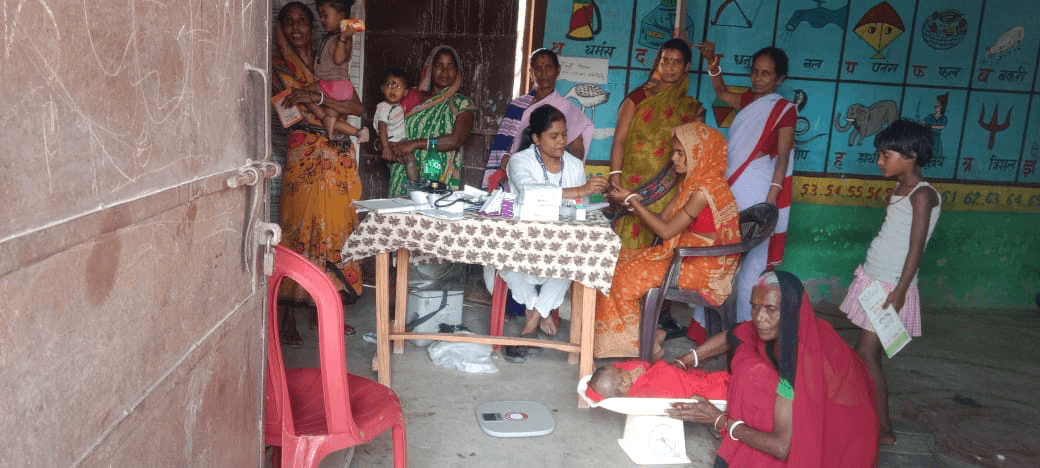
Sister Sinki working at a VHSND site at ward 10 in Pahariya village, Purnia.
To enhance her service delivery, Sinki actively engages in incremental training sessions hosted at government facilities. These sessions are conducted by the District Mentoring Team (DMT), comprising specialized trainers who periodically cover various health topics through hands-on methodologies. Each session blends theoretical knowledge with practical application, ensuring frontline healthcare workers like Sinki are equipped to handle real-world healthcare challenges effectively.
In January 2024, Sinki attended a pivotal capacity-building session titled "Prevention of Anaemia among pregnant women" held at the Block Primary Health Centre in Baisi, Purnia district. Led by the District Mentoring Team and supported by Piramal Foundation, the training covered various aspects of anaemia, including its causes, symptoms, identification, and prevention strategies. ANMs like Sinki also received practical training on using a hemoglobinometer, a digital tool for measuring haemoglobin levels.
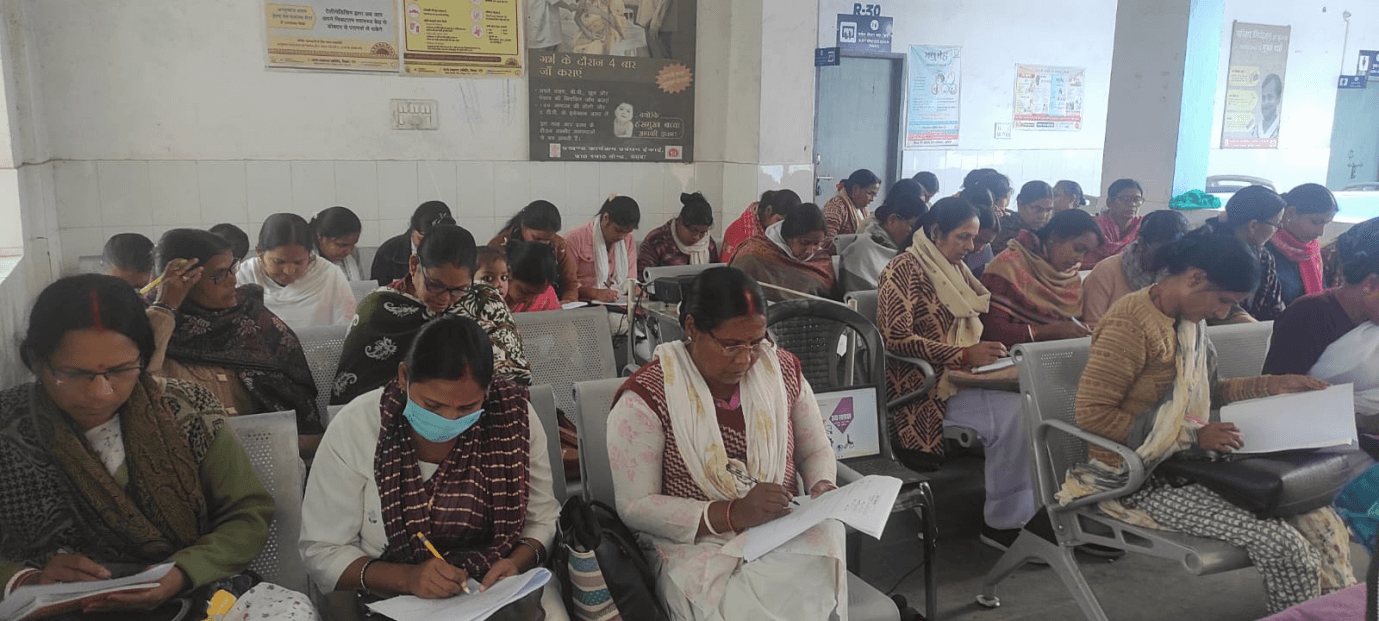
ANMs attending a session on “Anemia Prevention during Pregnancy” in Purnia, Bihar.
Before the training, Sinki had a limited understanding of anaemia and its widespread impact on the health of community members, particularly pregnant women. The session provided her with valuable insights into the different interventions needed at each stage of pregnancy to effectively combat anaemia. Furthermore, she learned about the programs offered by the National Health Mission including the availability of essential supplies aside from iron and folic acid (IFA) tablets.
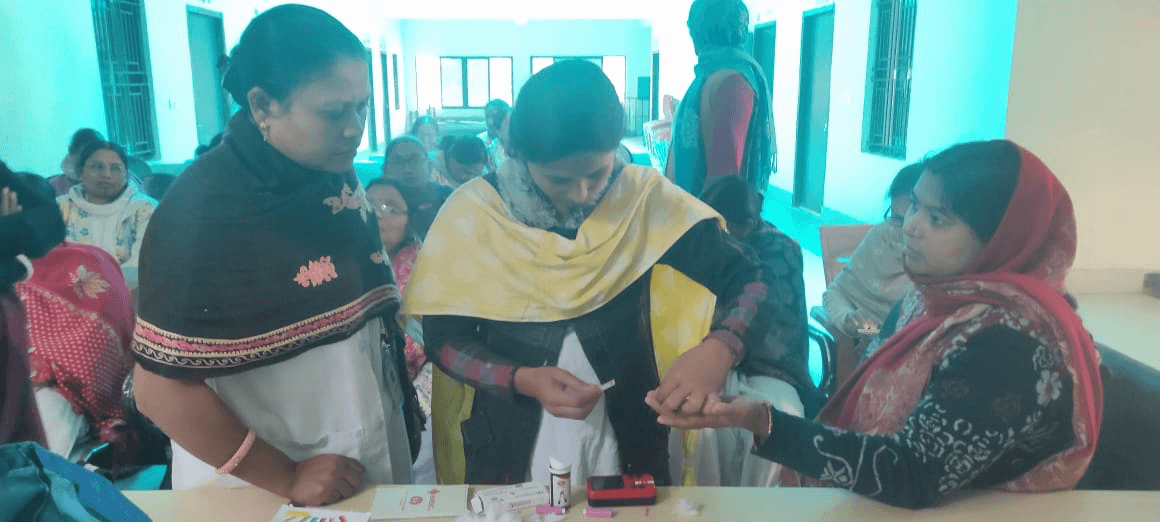
Live demonstration of using the hemoglobinometer during the session.
The hands-on demonstration of using the hemoglobinometer during the session proved beneficial for Sinki and her colleagues, as it simplified the process compared to the previous paper-based assessment methods. Sinki expressed her satisfaction, stating that she can now accurately identify anaemic beneficiaries and effectively explain the importance of adhering to the prescribed treatment. Her beneficiaries, understanding the benefits and rationale behind taking medication, have shown increased compliance and satisfaction. Her deeper knowledge of anaemia has helped enhance her service provisioning skills and helped her address questions that were left unanswered earlier.
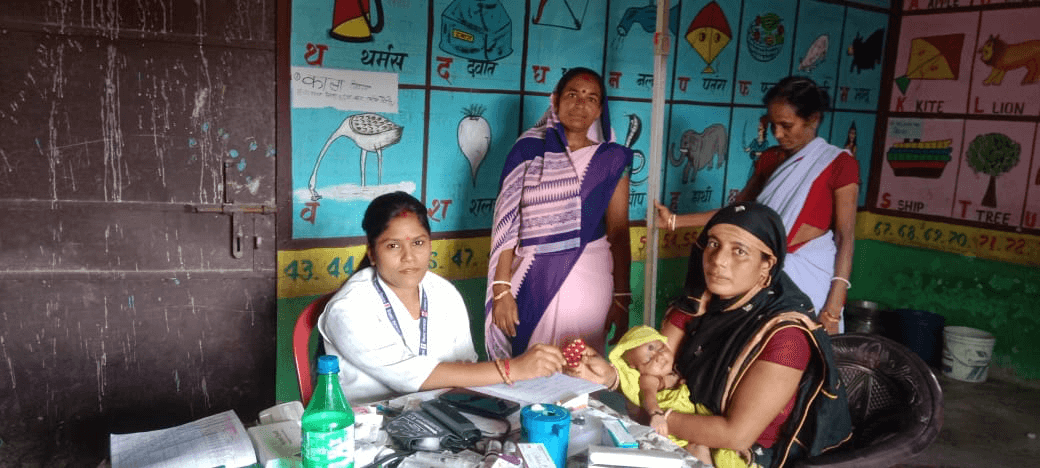
Sister Sinki administering iron and folic tablets to a new mother.
Anaemia remains a significant concern during pregnancy in Bihar, with the prevalence rates rising from 58% in 2015-16 to 63% in 2019-21 based on surveys conducted by the Government of India (NFHS-4 and NFHS-5). Furthermore, the data underscores that merely 18% of mothers adhered to the recommended intake of iron folic acid for 100 days or more during their pregnancies in the 2019-21 period. Recognizing the importance of addressing anaemia, the government has been actively training frontline healthcare workers in the T3 approach – Test, Treat, and Talk. Aligning with the government's efforts, Piramal Swasthya is providing skill enhancement sessions for frontline nurses who play a vital role in reaching out to the last-mile communities.
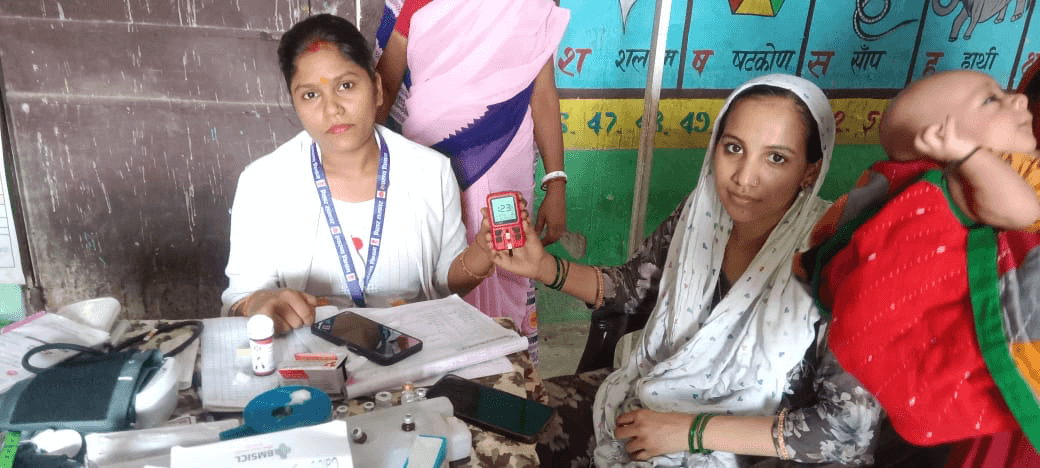
Sister Sinki measuring the hemoglobin of a pregnant beneficiary with the help of hemoglobinometer.
By equipping healthcare professionals such as Sinki Kumari with comprehensive knowledge and skills to tackle anaemia, Bihar is making substantial strides in improving maternal health and overall community well-being. Sinki's enhanced service provisioning skills and ability to address previously unanswered health concerns underscore the transformative impact of targeted training and support. This investment not only addresses immediate health challenges but also strengthens Bihar's healthcare infrastructure, ensuring sustainable improvements in public health outcomes for years to come.
TAGS
SHARE





